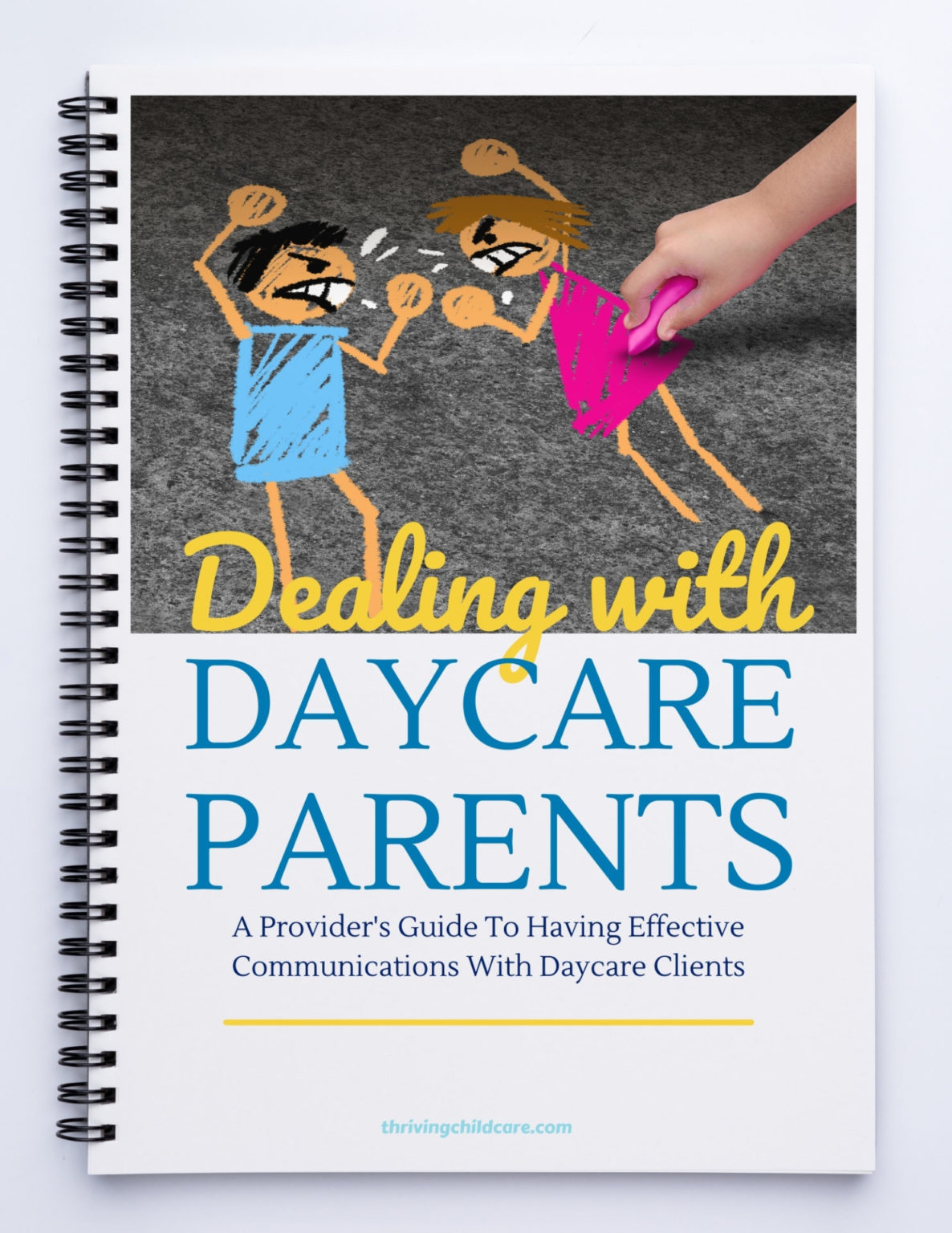Considering Daycare? Practical Advice For Working Parents

Table of Contents
Choosing the Right Type of Daycare
Selecting the right type of daycare is the first crucial step. Your decision will likely depend on your budget, your child's age and personality, and your priorities. Two primary options exist: in-home daycare and center-based daycare.
In-Home vs. Center-Based Care
In-home daycare offers a smaller, more intimate setting with personalized attention from the caregiver. It’s often less expensive than center-based care. However, the educational structure might be less formal, and finding a licensed and insured provider is crucial.
- Pros: Personalized attention, often less expensive, familiar home-like environment.
- Cons: Limited resources and activities compared to centers, potential for less structured learning, reliance on a single caregiver.
Center-based daycare provides a more structured curriculum, a wider range of activities, and greater opportunities for social interaction with other children. Accreditation and teacher qualifications are essential factors to consider. They typically have more staff members and resources than in-home care.
- Pros: Structured learning environment, diverse activities, opportunities for socialization, often multiple qualified caregivers.
- Cons: Can be more expensive, less personalized attention, potentially larger group sizes.
Finding Daycares Near Your Workplace or Home
Convenience is key! The location of your chosen daycare significantly impacts your daily routine. Consider factors like commute time, traffic patterns, and proximity to public transport.
- Utilize online search engines (Google Maps, Yelp) and daycare directories to find options in your area.
- Factor in potential traffic delays, especially during peak hours. A seemingly short distance can become a significant commute during rush hour.
- If you rely on public transportation, ensure the daycare is easily accessible by bus or train.
Assessing Daycare Quality and Safety
Beyond convenience, the quality and safety of the daycare are paramount. Thorough research is essential to ensure your child's well-being.
Licensing and Accreditation
Verify the daycare's licensing and accreditation to guarantee compliance with safety regulations and best practices.
- Contact your state's licensing agency to check the daycare's credentials and ensure it meets all legal requirements.
- Look for accreditation from reputable organizations such as the National Association for the Education of Young Children (NAEYC). NAEYC accreditation signifies a commitment to high-quality early childhood education.
Teacher-to-Child Ratio and Staff Qualifications
Appropriate teacher-to-child ratios and qualified staff are vital for child safety and development.
- Lower ratios generally mean more individualized attention and better supervision. Inquire about the specific ratios for different age groups.
- Ask about staff qualifications, experience levels, background checks, and ongoing professional development opportunities.
Health and Safety Procedures
Robust health and safety procedures are non-negotiable. A safe environment protects your child from accidents and illnesses.
- Inquire about their protocols for handling illnesses, accidents, and emergencies. Ask about their emergency contact procedures and how they handle unexpected events.
- Observe the cleanliness and safety of the facility during your visit. Pay attention to details like handwashing facilities, emergency exits, and the overall tidiness of the environment.
The Financial Aspects of Daycare
Daycare costs can be a significant expense. Careful budgeting and exploration of financial assistance options are crucial.
Cost Comparison and Budgeting
Research average daycare costs in your area. This will help you create a realistic budget.
- Factor in tuition fees, registration fees, additional fees for meals or snacks, and any potential extra charges.
- Explore potential financial assistance programs offered by your employer, local government, or non-profit organizations.
Tax Credits and Deductions
Many governments offer tax credits and deductions for childcare expenses.
- Research federal and state tax credits and deductions relevant to your situation. The Child and Dependent Care Credit is a common example in many countries.
- Consult a tax professional for personalized advice to understand how to maximize your tax benefits.
Making the Right Choice for Your Child
The final step involves considering your child's unique needs and personality. A good fit fosters their development and happiness.
Observing the Daycare Environment
Visiting the daycare is crucial. Observe the interactions between children and staff to get a feel for the atmosphere.
- Observe the interactions between the children and staff. Are they positive, supportive, and nurturing?
- Note the overall atmosphere – is it calm, stimulating, and organized?
- Trust your instincts. A good daycare will make you feel comfortable and confident.
Considering Your Child's Needs and Personality
The ideal daycare should align with your child's individual needs and temperament.
- Select a setting that caters to your child's developmental stage and personality. For example, an active, outgoing child might thrive in a center with a lot of outdoor play, while a more introverted child might prefer a smaller, quieter setting.
- Consider your child's social and emotional needs. Does your child need a lot of one-on-one attention, or does he or she thrive in a group setting?
Finding the Perfect Daycare for Your Family
Choosing a daycare requires careful consideration of several factors: location, cost, quality, safety, and your child’s unique needs. Remember to prioritize your child's well-being and your family's needs when making this important decision. Thorough research is essential. By following the steps outlined in this guide, you’ll be well-equipped to find the best daycare options for your family and ultimately, the perfect daycare for your child. Start your search for the perfect daycare today, armed with the knowledge and advice provided in this guide. Remember to prioritize your child's well-being and your family's needs when selecting quality childcare.

Featured Posts
-
 Povernennya Kinga Kritika Trampa Ta Maska
May 09, 2025
Povernennya Kinga Kritika Trampa Ta Maska
May 09, 2025 -
 Us Immigration Policy Under Scrutiny The Kilmar Abrego Garcia Case
May 09, 2025
Us Immigration Policy Under Scrutiny The Kilmar Abrego Garcia Case
May 09, 2025 -
 Tomas Hertls Second Hat Trick Golden Knights Defeat Red Wings
May 09, 2025
Tomas Hertls Second Hat Trick Golden Knights Defeat Red Wings
May 09, 2025 -
 Renaissance Et Modem Vers Une Fusion Sous L Impulsion D Elisabeth Borne
May 09, 2025
Renaissance Et Modem Vers Une Fusion Sous L Impulsion D Elisabeth Borne
May 09, 2025 -
 Uk Government To Restrict Visas Which Nationalities Will Be Affected
May 09, 2025
Uk Government To Restrict Visas Which Nationalities Will Be Affected
May 09, 2025
